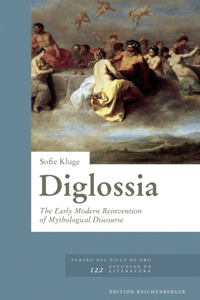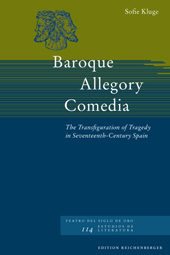: 978-3-944244-48
Honest Entertainment, Transcendental Jest «Six Essays on Don Quijote and Novelistic Theory»
Sofie Kluge
Editorial: Reichenberger Fecha de publicación: 09/03/2017 Páginas: 264Formato: Rústica, 21 x 15 cm.
• Translation by Gaye Kynoch.
• Through the centuries Don Quijote has delighted readers, inspired artists, stimulated thinkers, and helped form historians' perception of early modern Spain. It has, furthermore, played a major part in the development and theoretisation of one of the modern world’s most characteristic literary forms: the novel. In its own playful and non-systematic fashion, Honest Entertainment, Transcendental Jest. Six Essays on Don Quijote and Novelistic Theory explores the reception of Cervantes’ masterpiece with special attention to its significance for the theory of the novel. A book about books about a book about books, this volume is essentially an introduction to the theory of a seminal modern literary genre as approached from the vantage point of the outstanding, truly epoch-making work. Chapters can be read separately as introductions to individual cervantists or theorists of the novel (including Friedrich Schlegel, Viktor Shklovsky, Georg Lukács, and Milan Kundera), but are also connected via a unifying theoretical theme —the question of what is the ultimate direction of novelistic mimesis: towards abstract ideas or worldly phenomena?— and the discussion of the continuous recurrence of the opposition between Enlightenment and Romanticist literary aesthetics in the theory of the novel.
CONTENTS
Foreword
Introduction
I. Enlightenment Reception of Don Quijote
1. Baroque, Enlightenment and Classicism — 2. Mayáns y Siscar’s «Vida» — 3. Intermezzo — 4. Vicente de los Ríos’ “Análisis” — 5. Enlightenment Concept of the Novel
II. Athenäum-Romanticsm
1. Prefatory remarks on Romanticism — 2. Background — 3. Friedrich Schlegel’s reading of Don Quijote — 4. Schelling’s theory of symbolic language — 5. The Romantics’ Allegorical Aesthetics — 6. The Novel According to the Athenäum Romantics
III. Georg Lukács’ Theory of the Novel
1. Lukács Readdresses the Schism between the Romantics and Hegel (and Goethe) — 2. Life Immanence and Epic Totality — 3. Great and Minor Epic — 4. The Demonic Born of the Collision between Counter-Reformation and Enlightenment — 5. Perspective — 6. Concept of the Novel in Theorie des Romans
IV. Viktor Shklovsky’s Theory of Prose
1. The Formalist Project — 2. O teorii prozy — 3. Confronting Symbolism — 4. Showdown with the ‘Ethnographic School’ — 5. Primacy of Form — 6. Constructing Don Quijote — 7. Shklovsky’s Concept of the Novel — 8. Marthe Robert between Lukács and Shklovsky
V. Erich Auerbach’s Theory of Realism
1. A Talented Reader — 2. Cervantes’ Arabesque Realism — 3. Auerbach’s Concept of the Novel
VI. Milan Kundera’s Art of the Novel
1. European Cultural Heritage — 2. L’Art du roman — 3. Kundera’s Concept of the Novel
Closing Remarks
Bibliography





